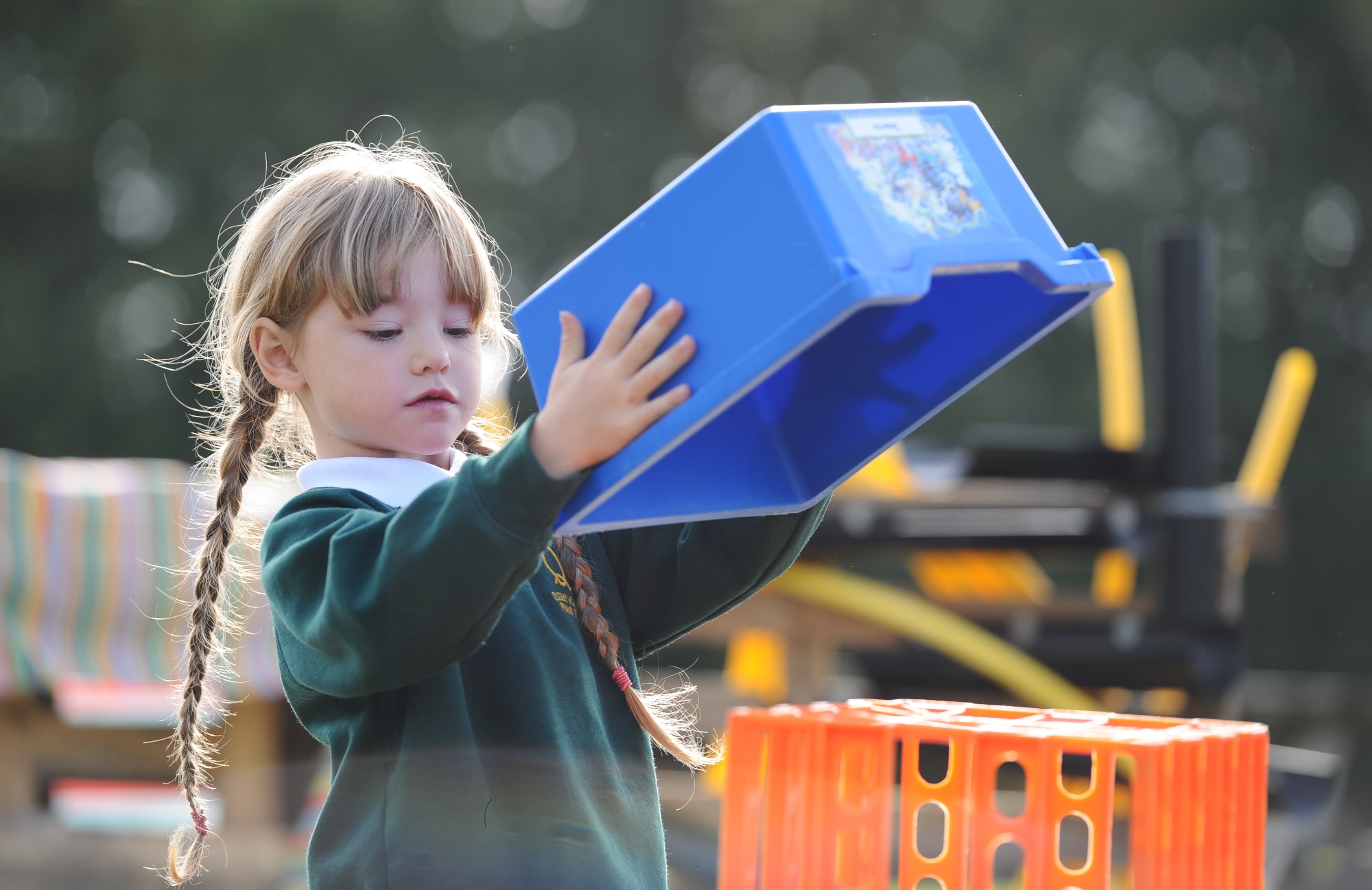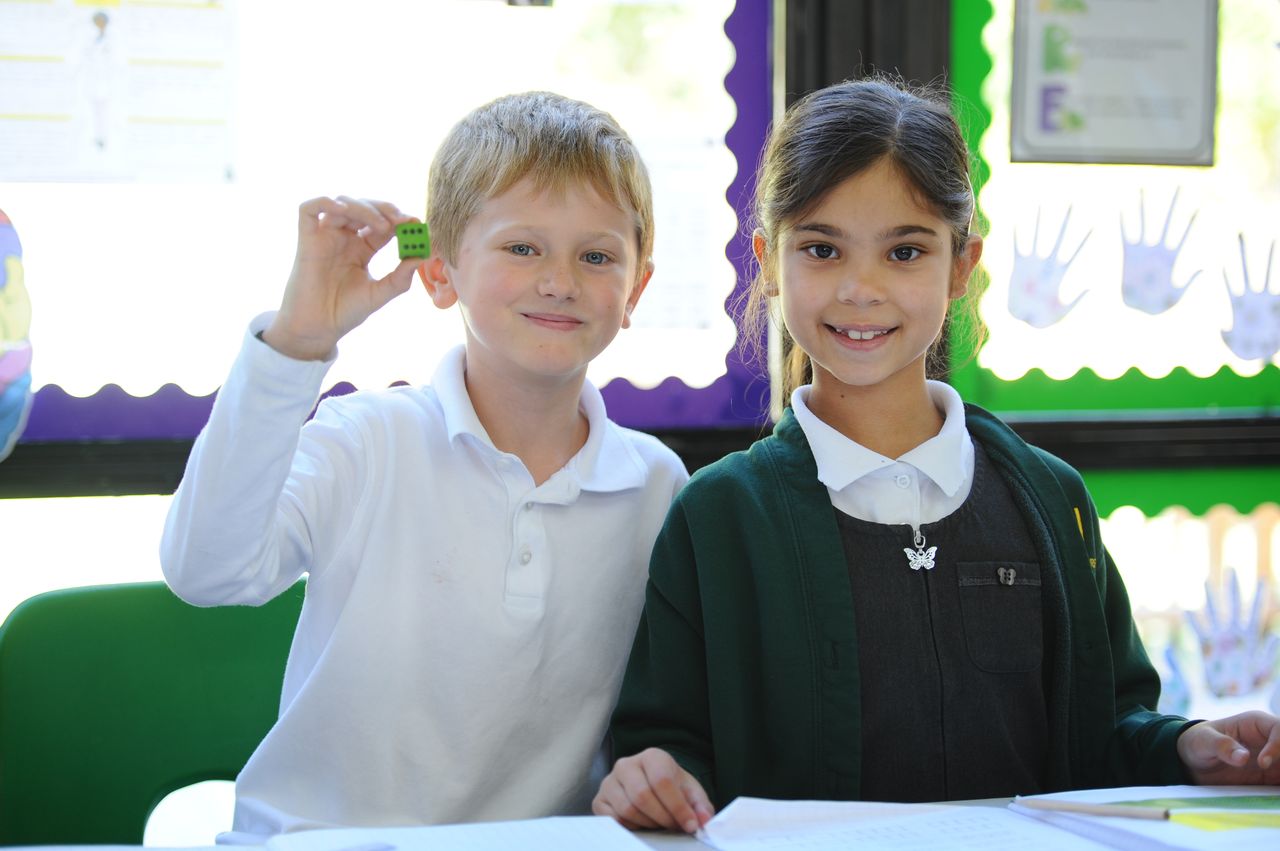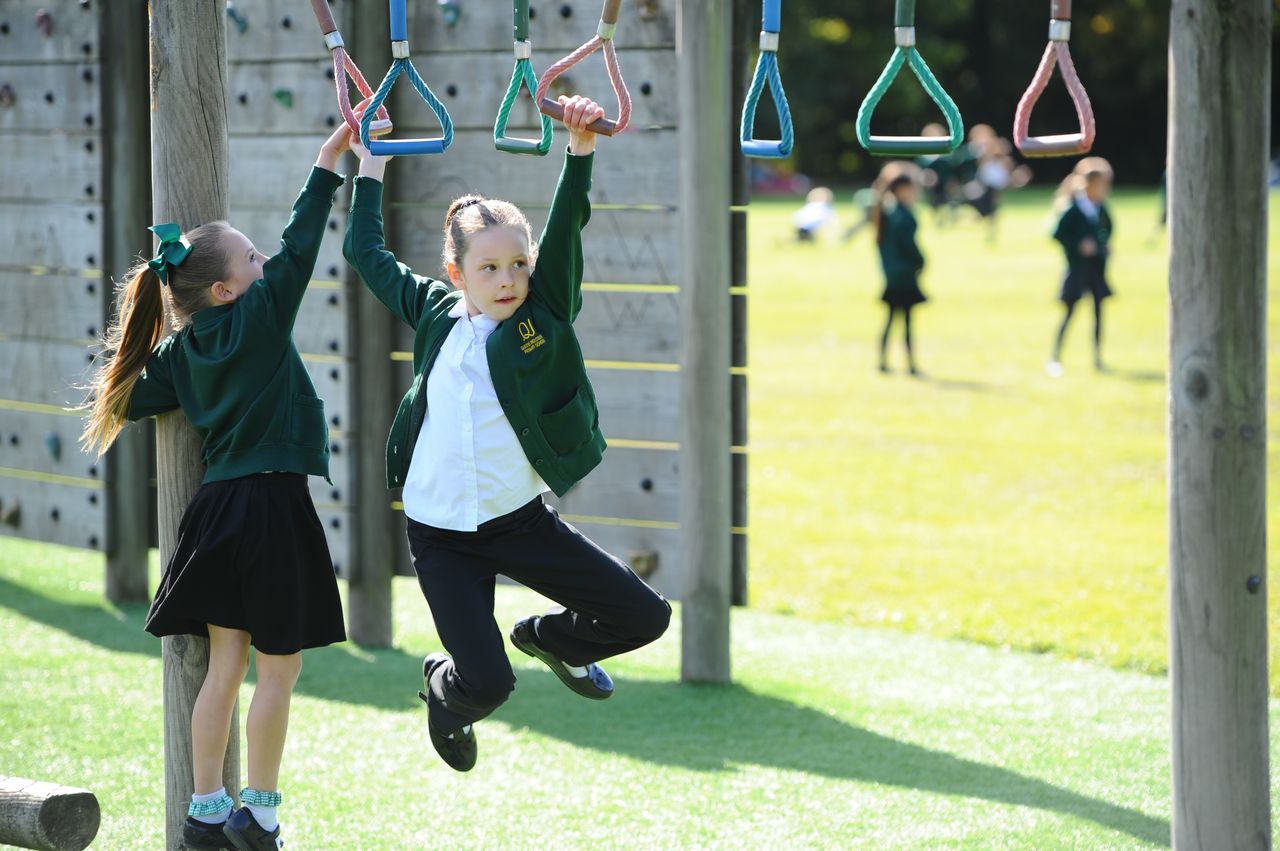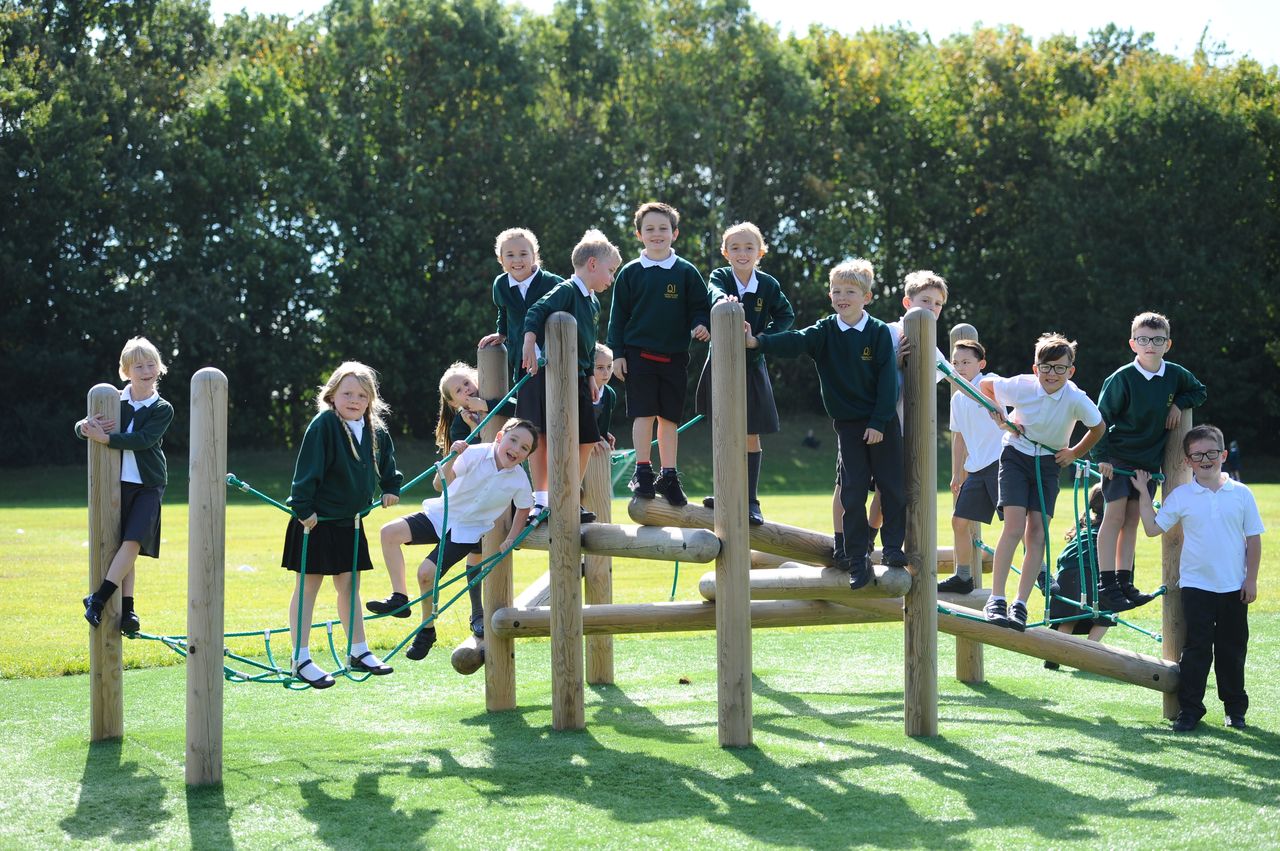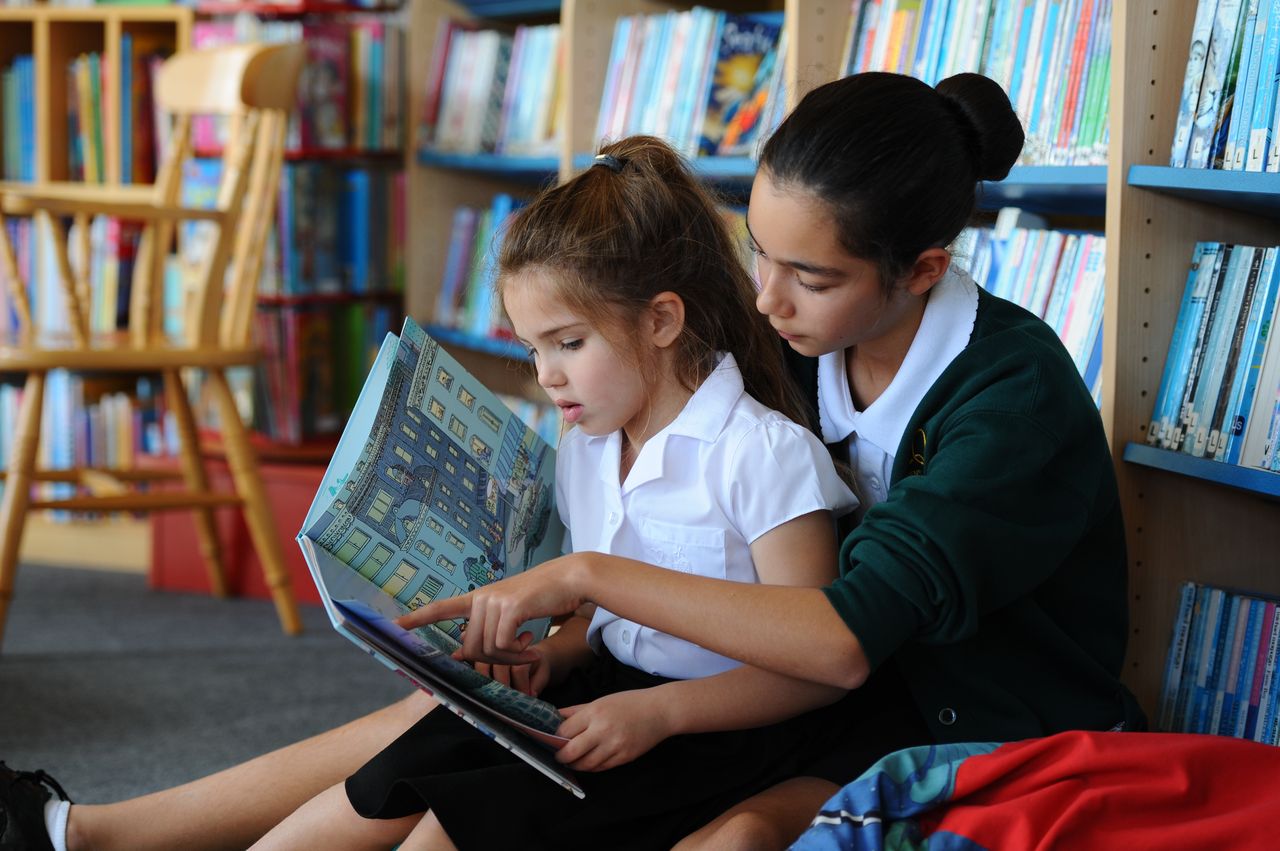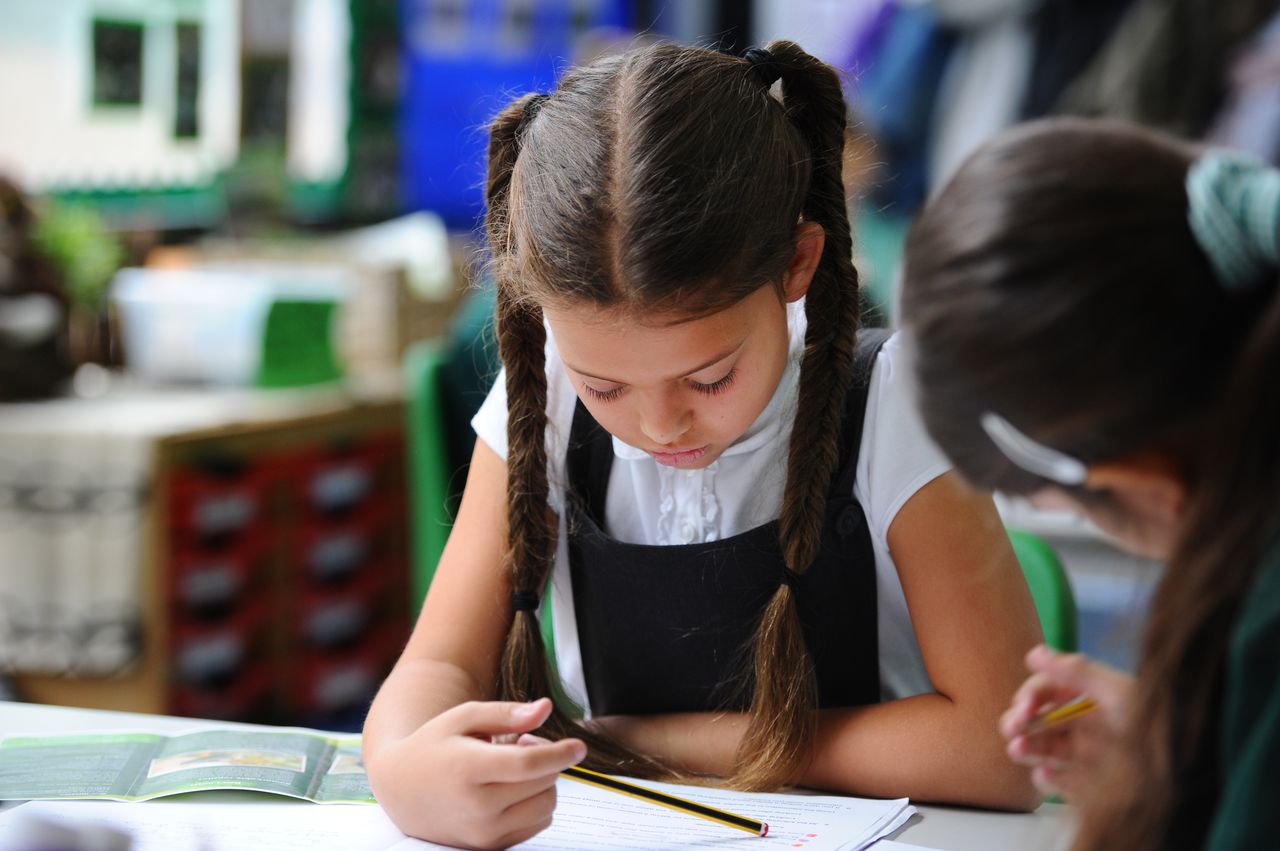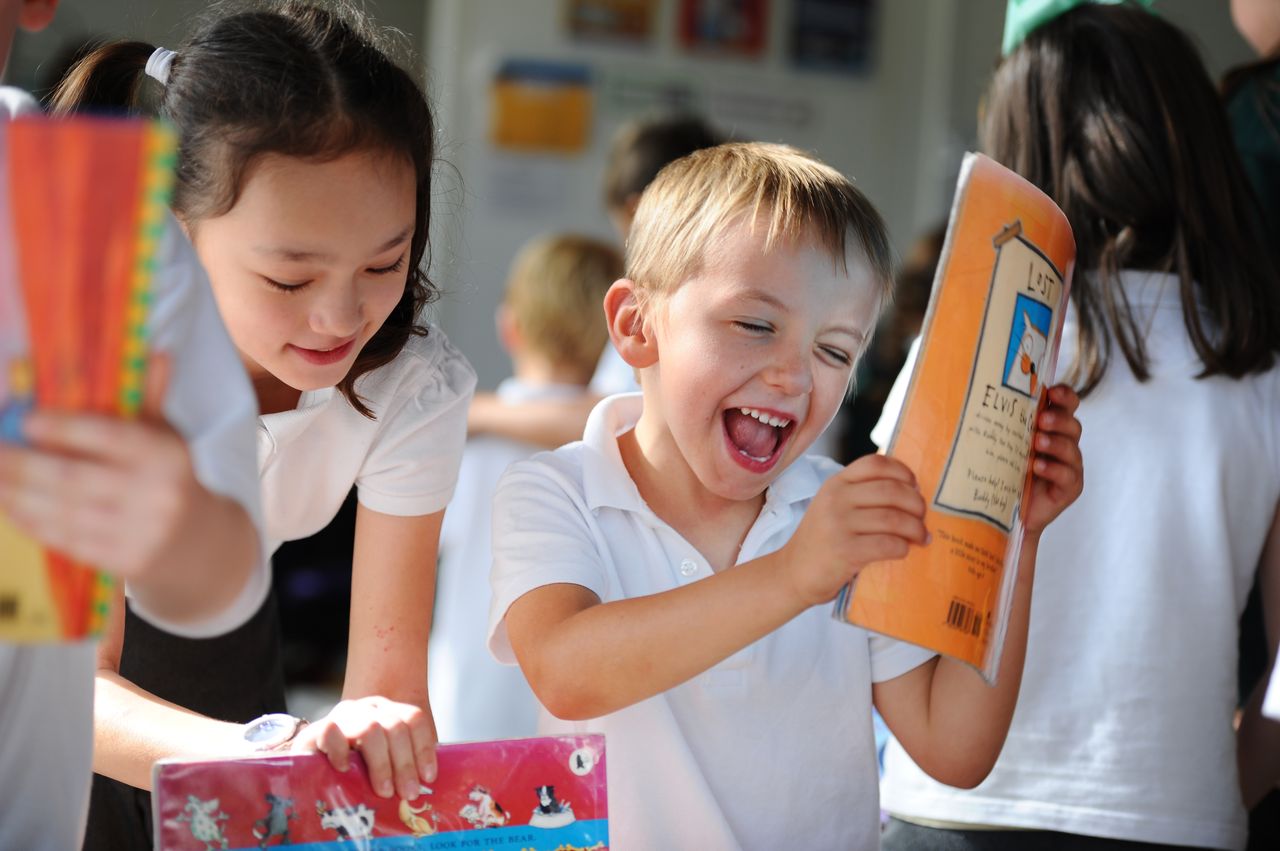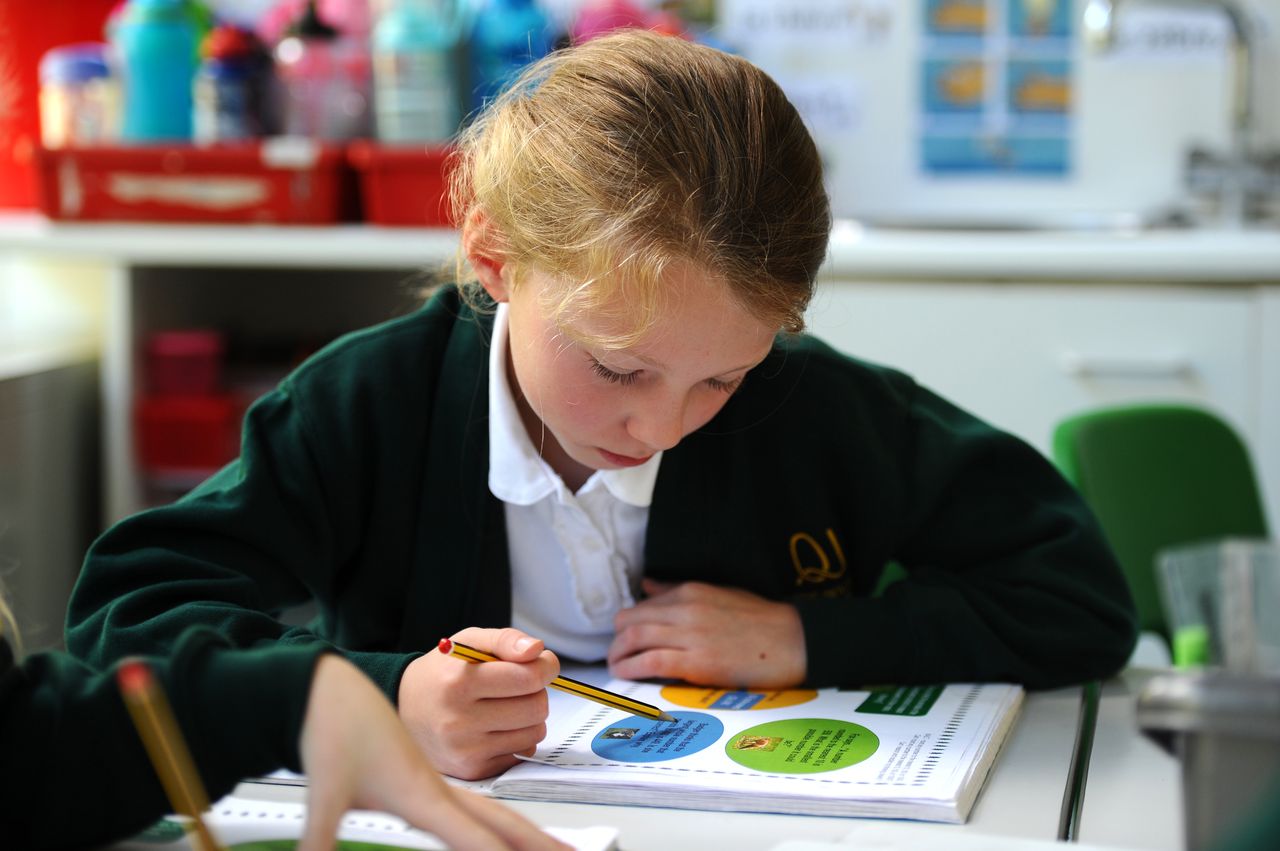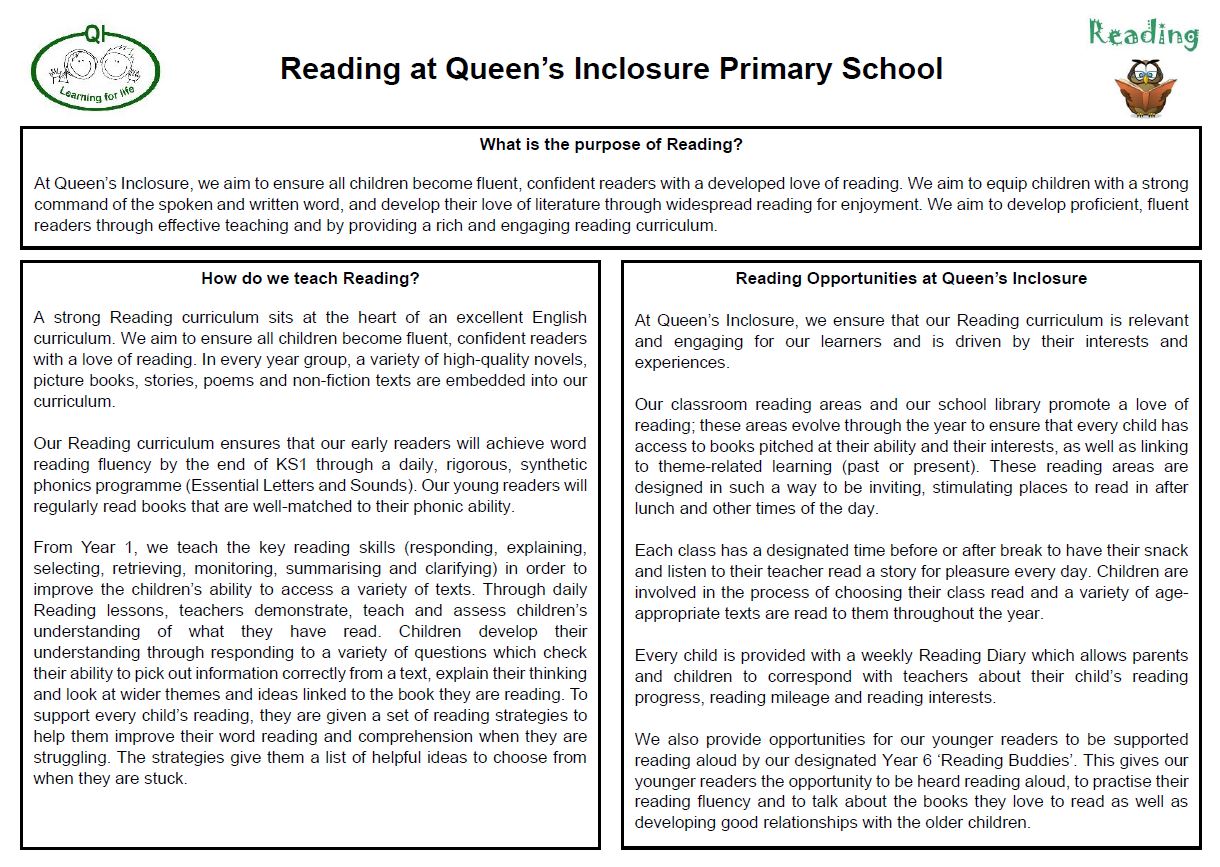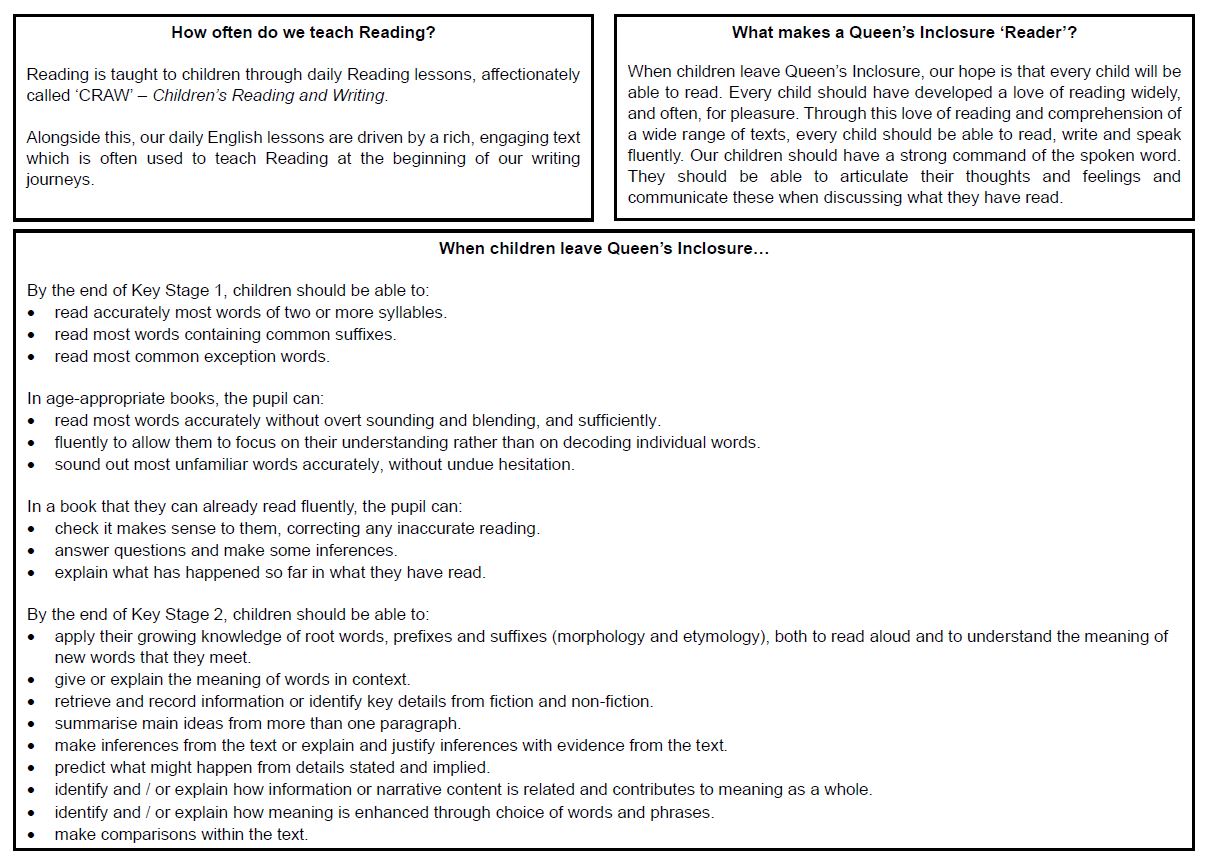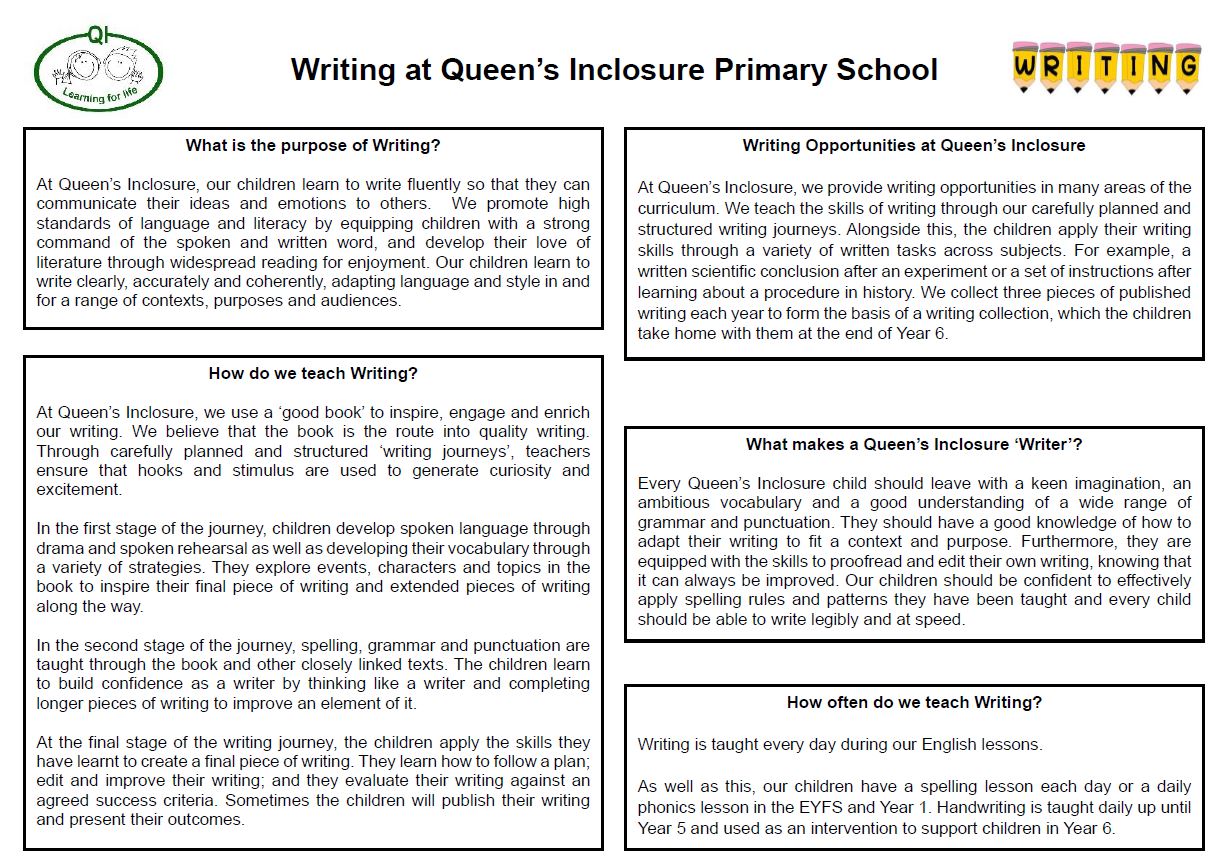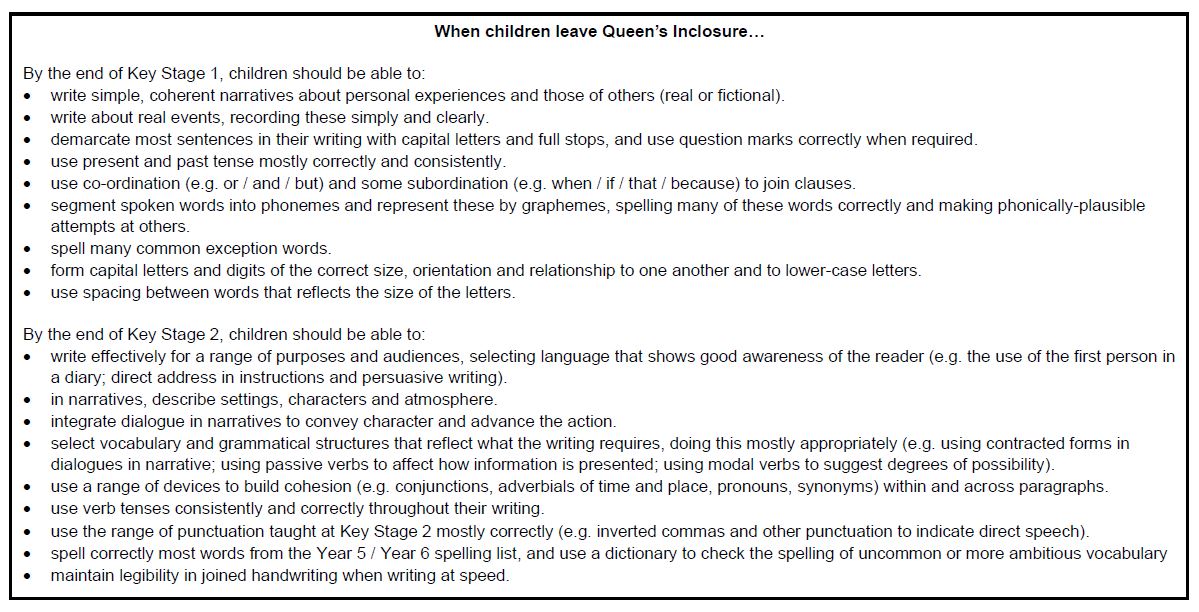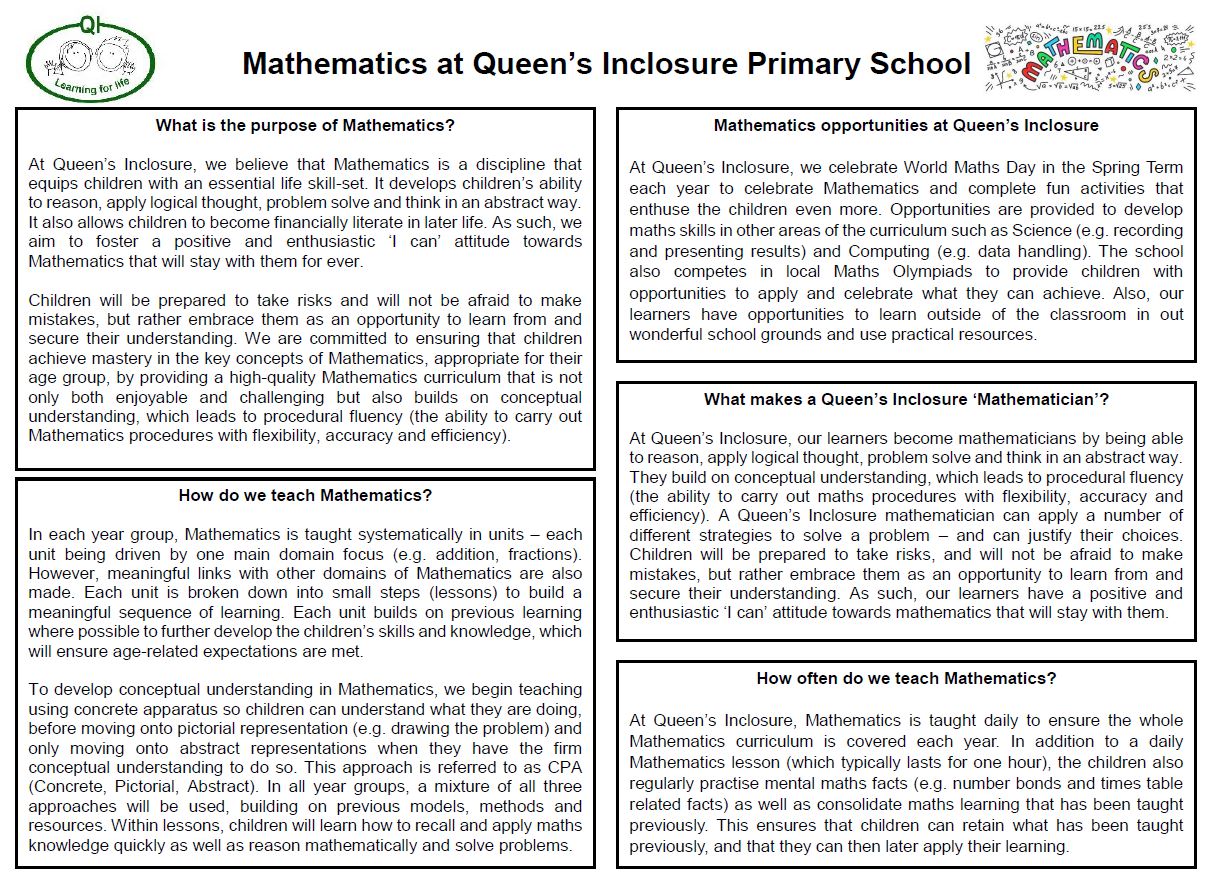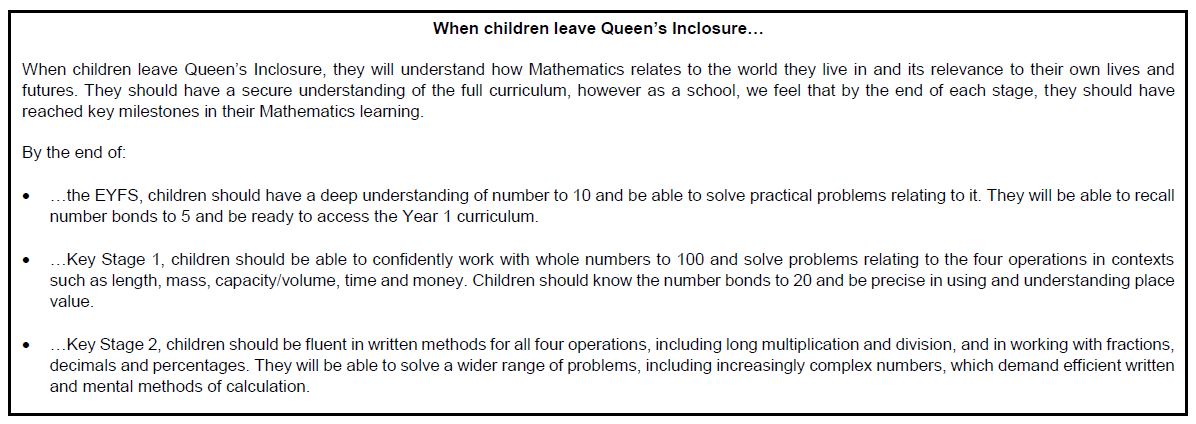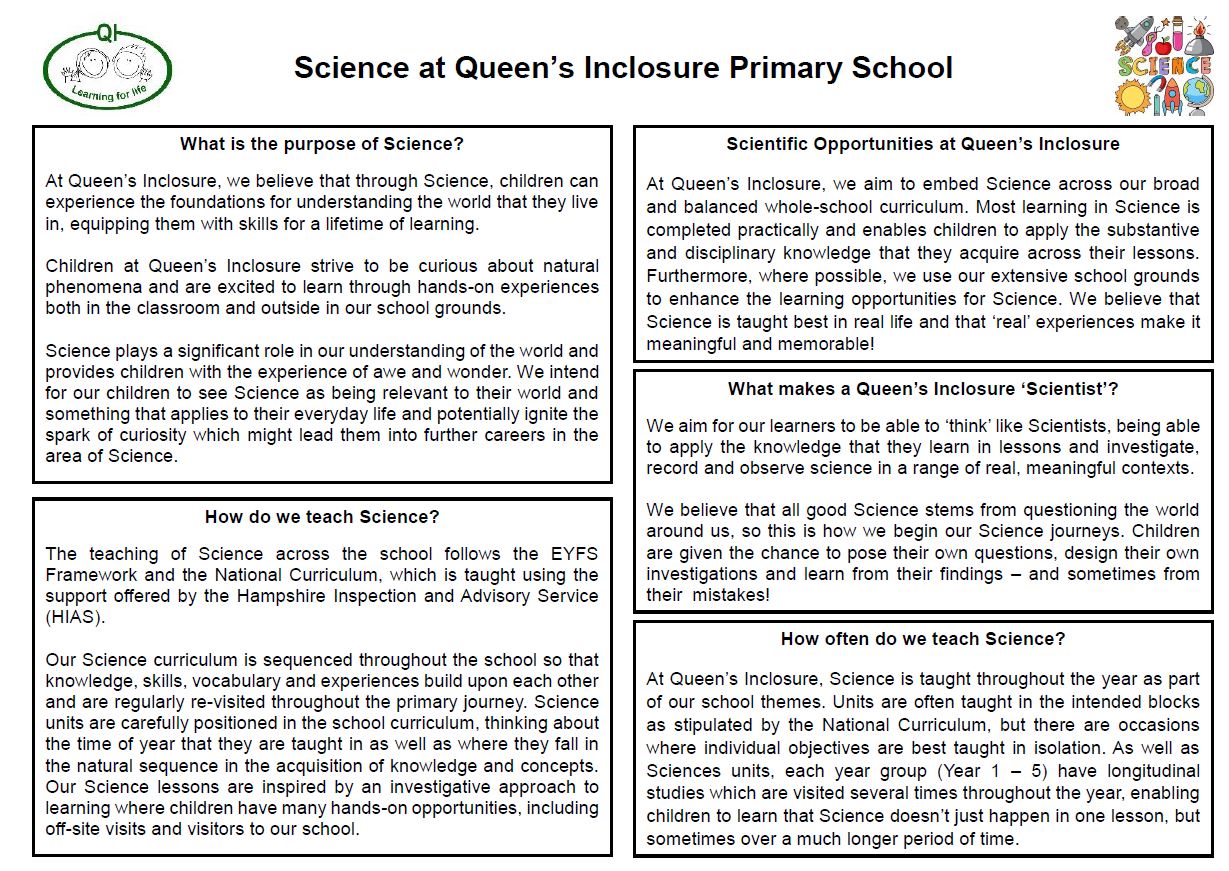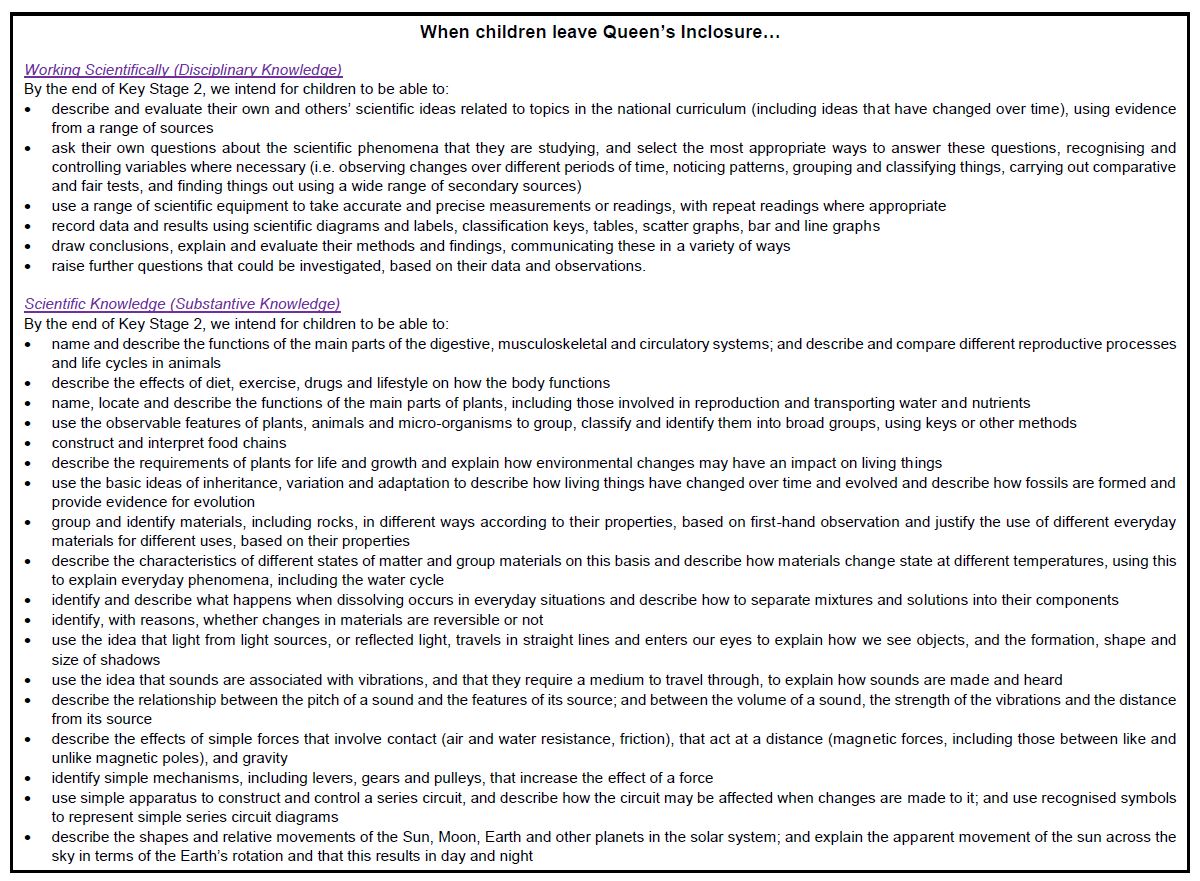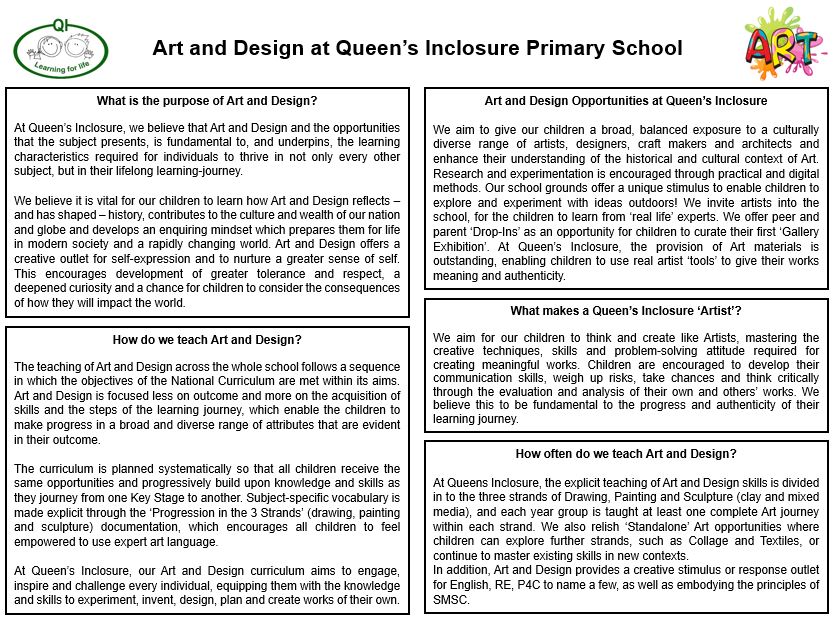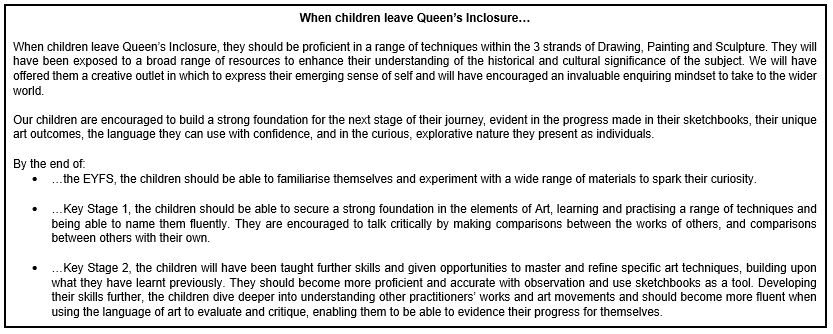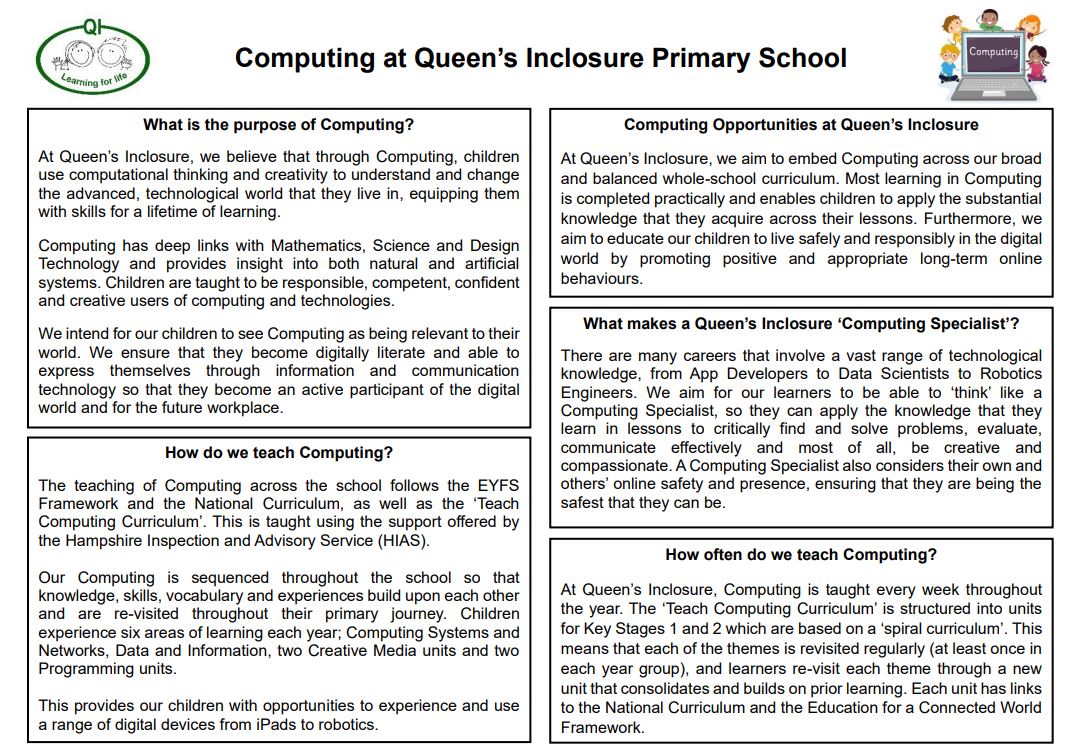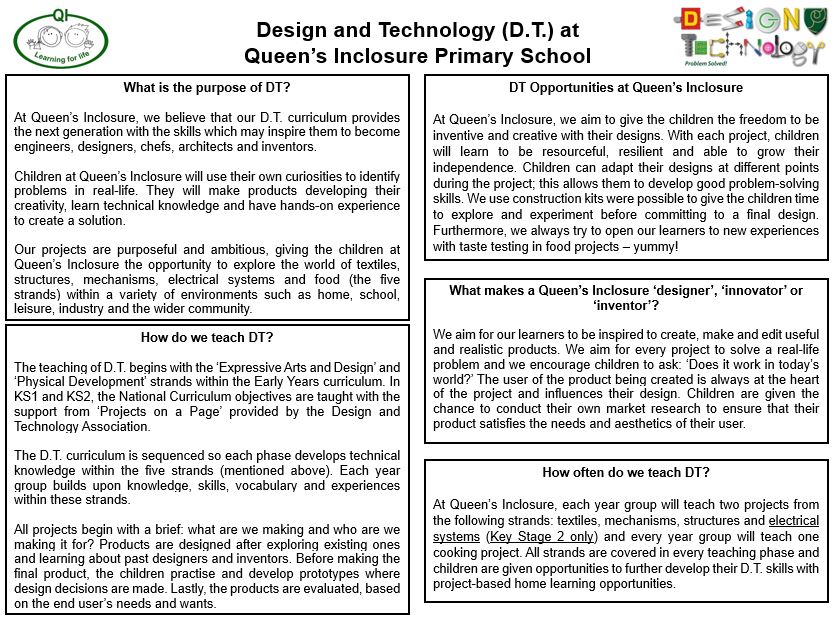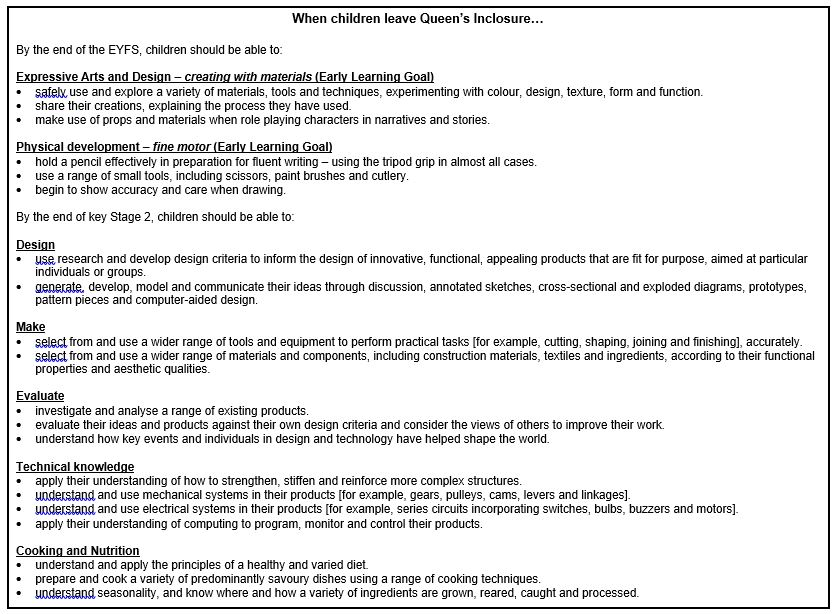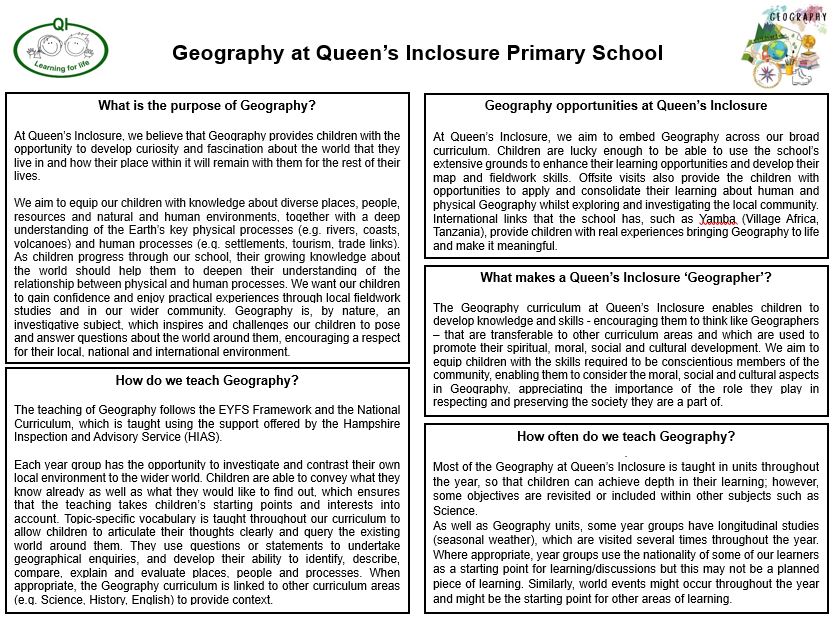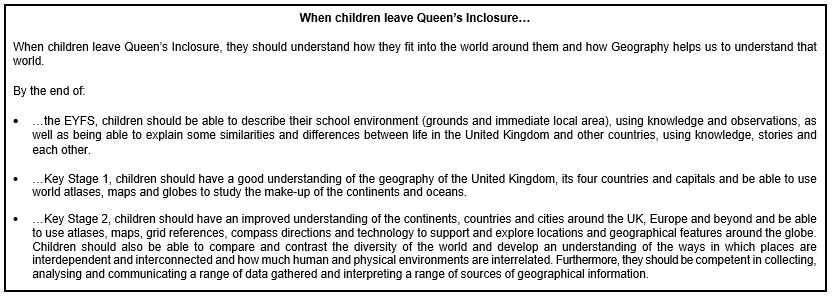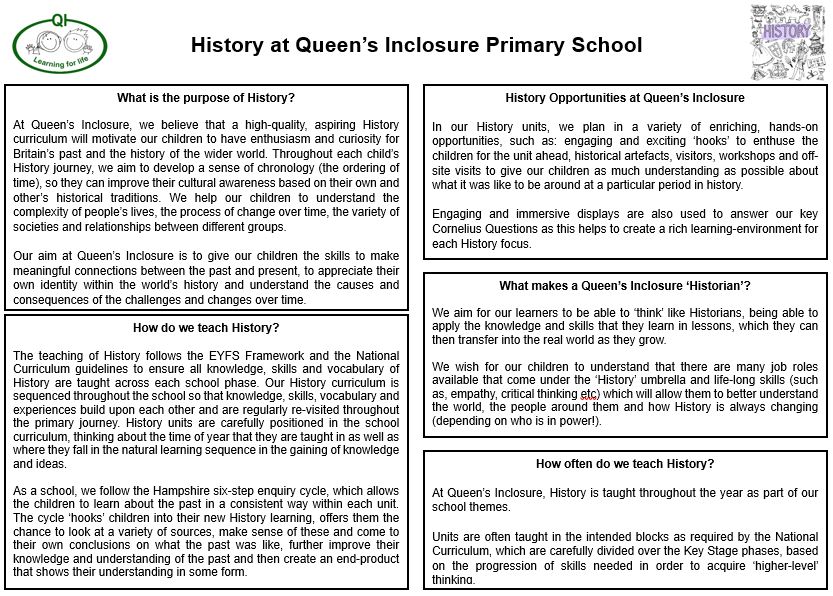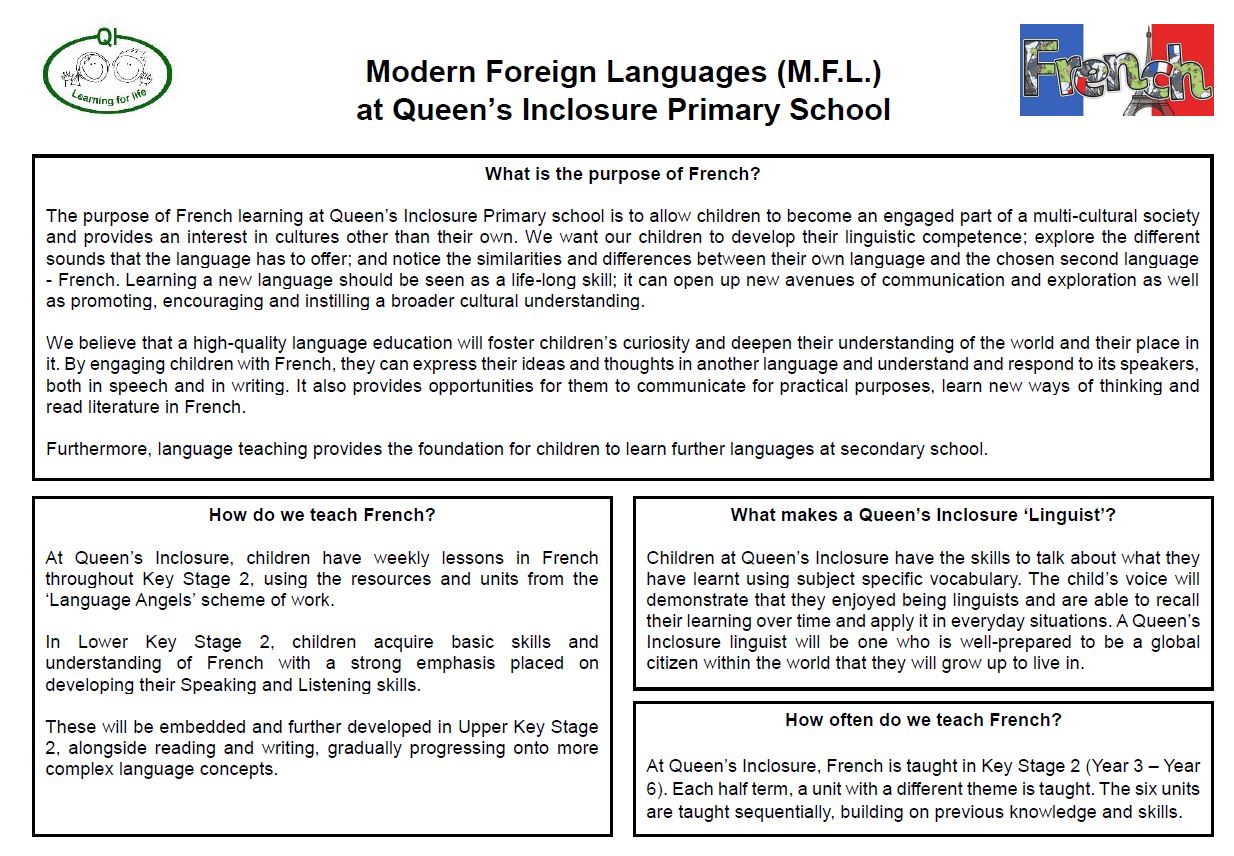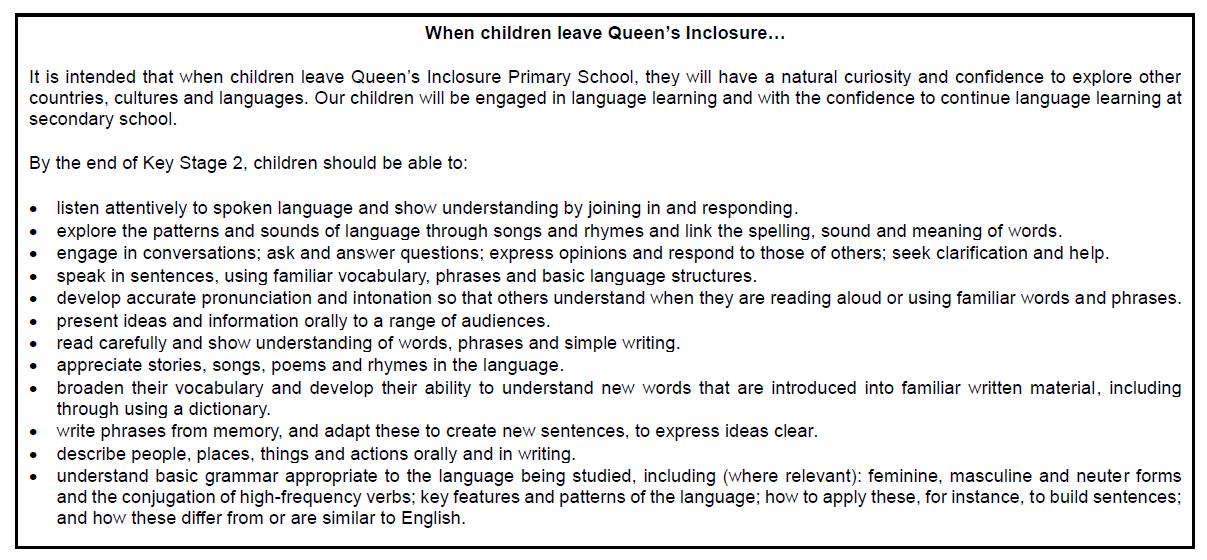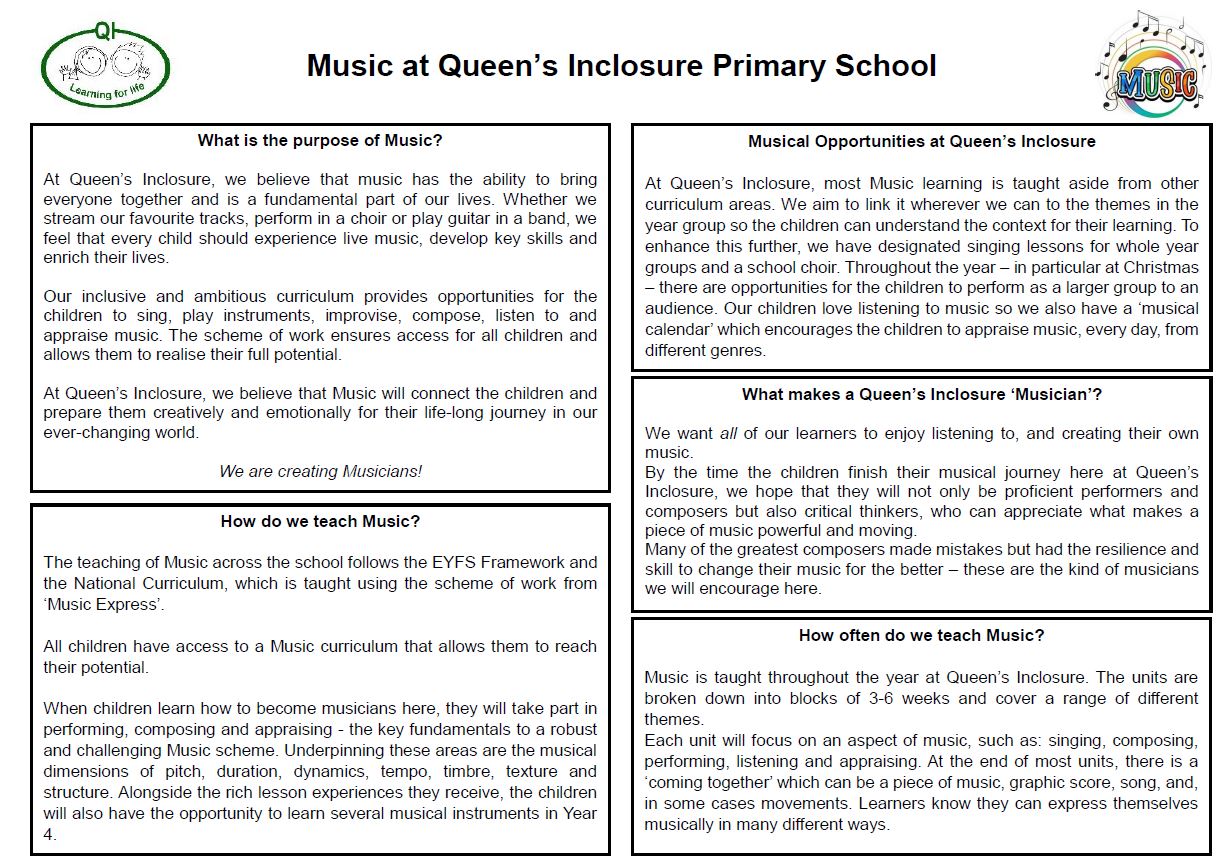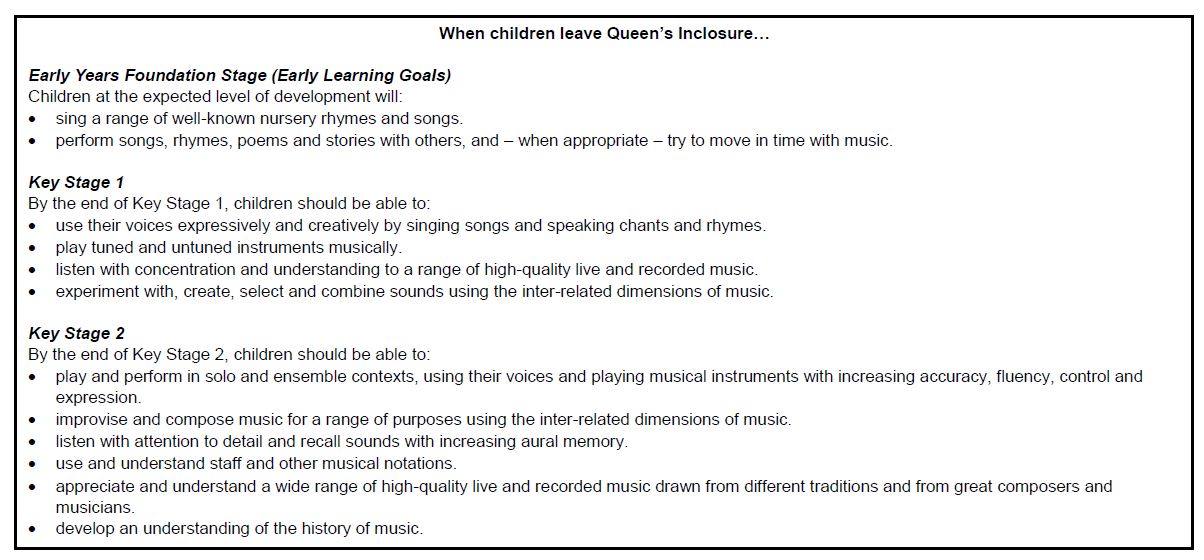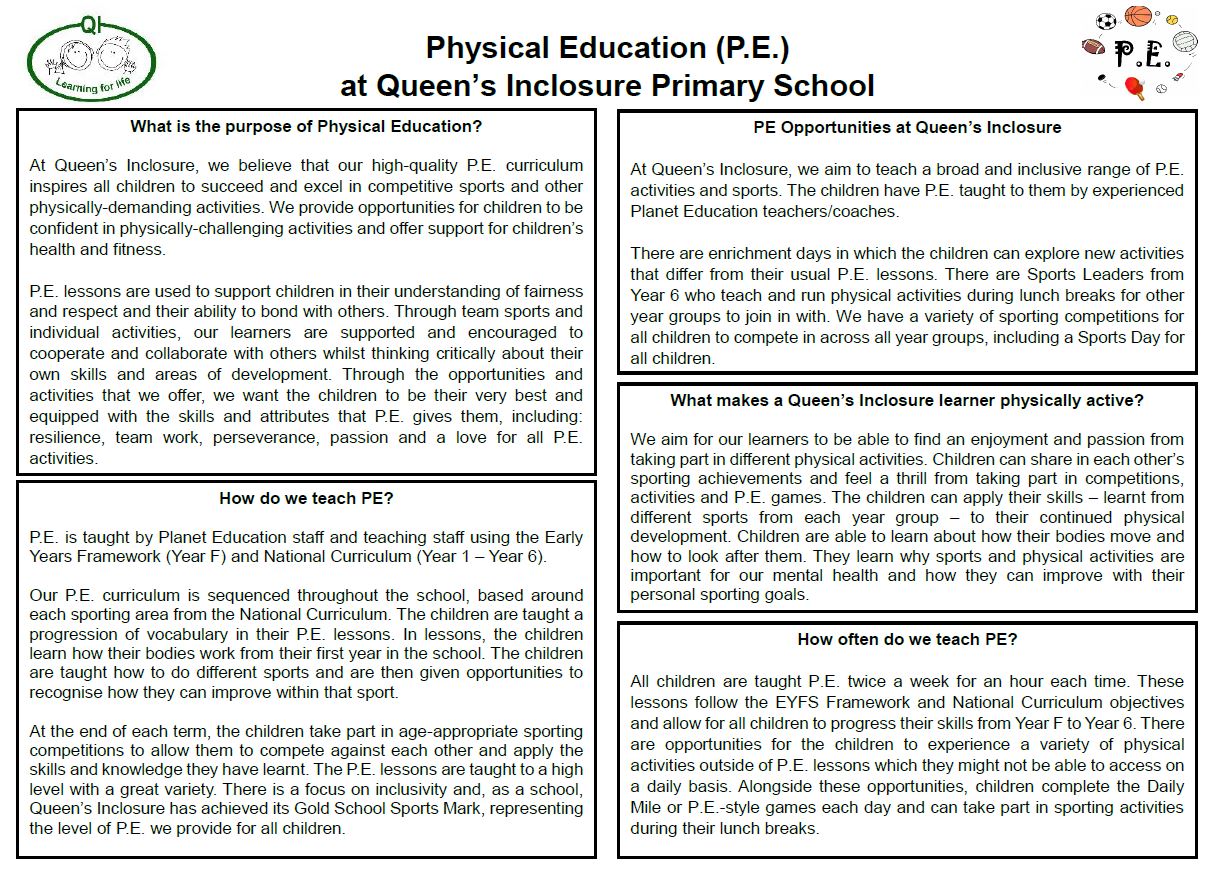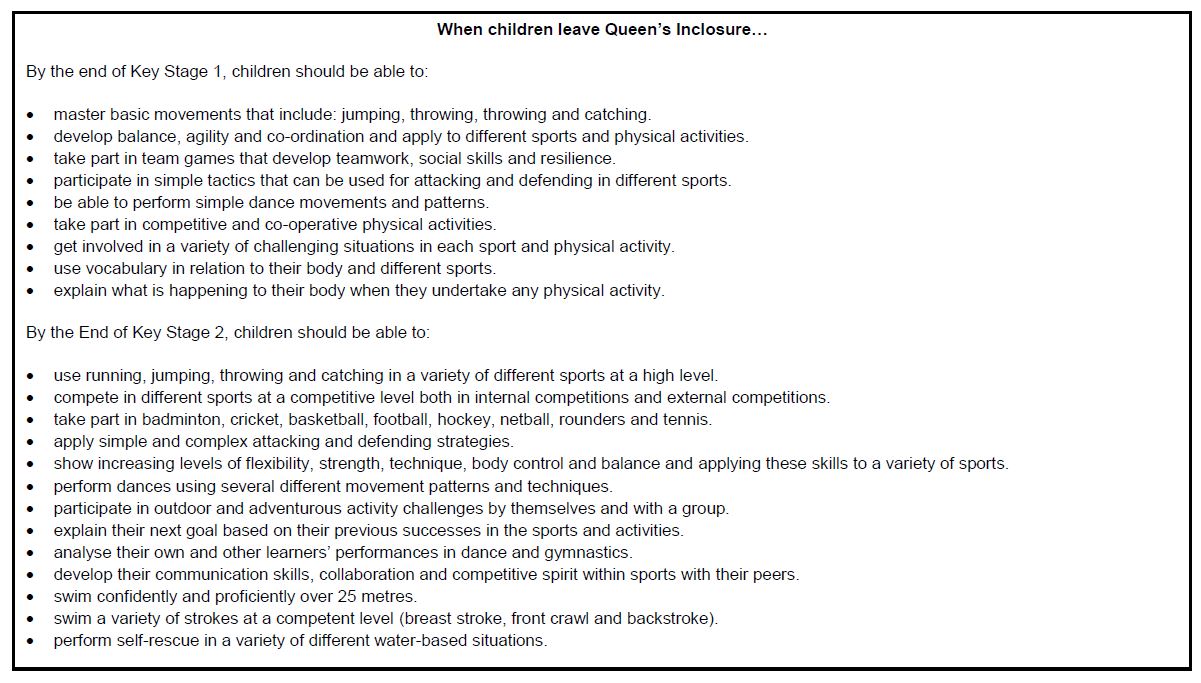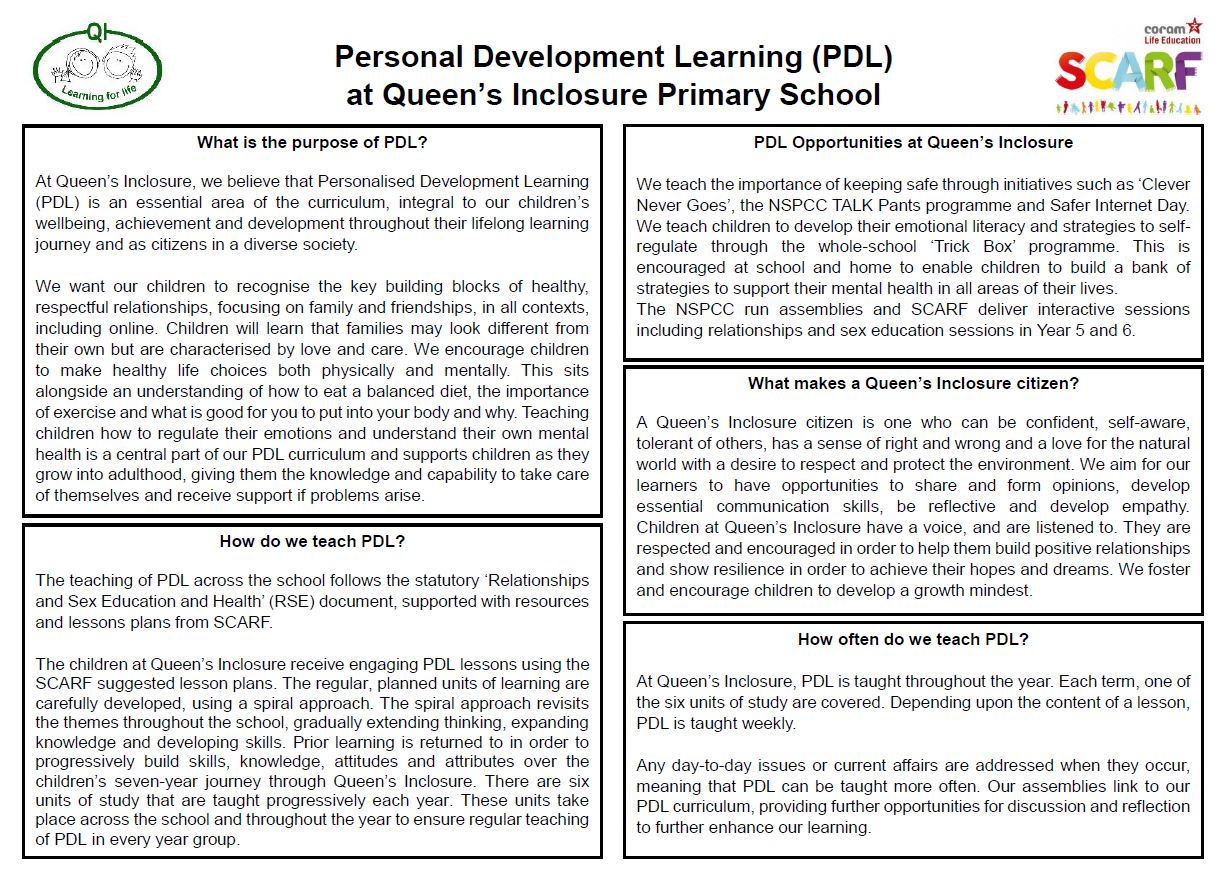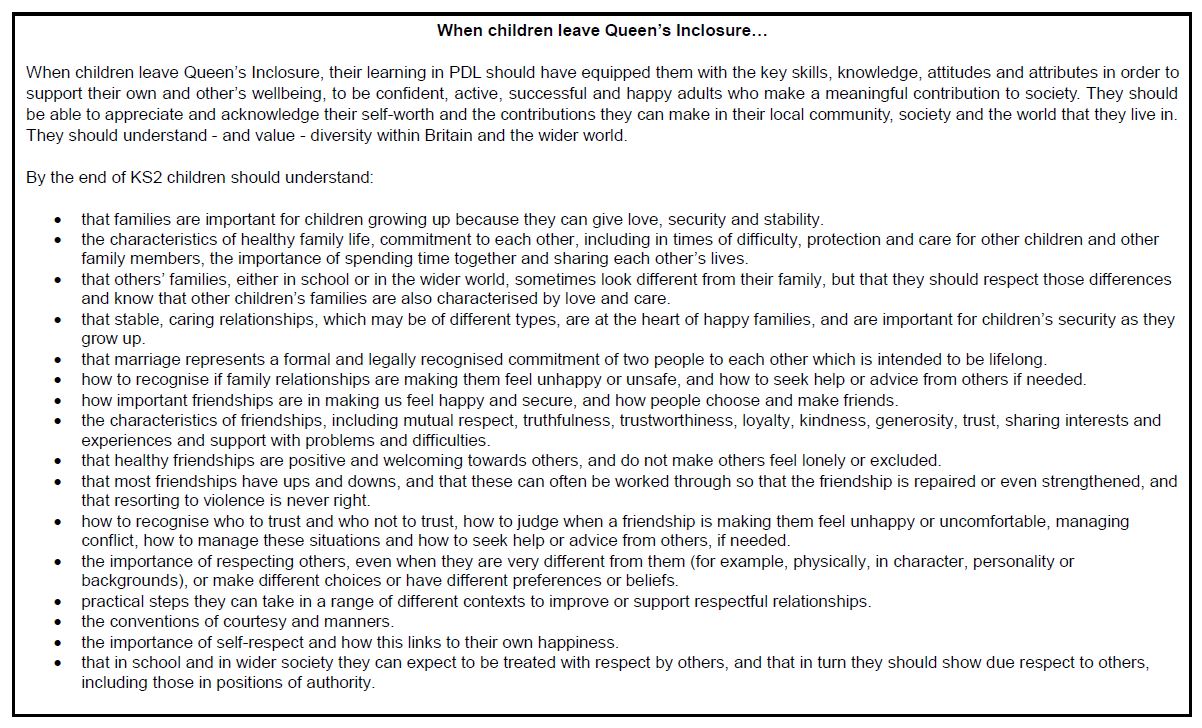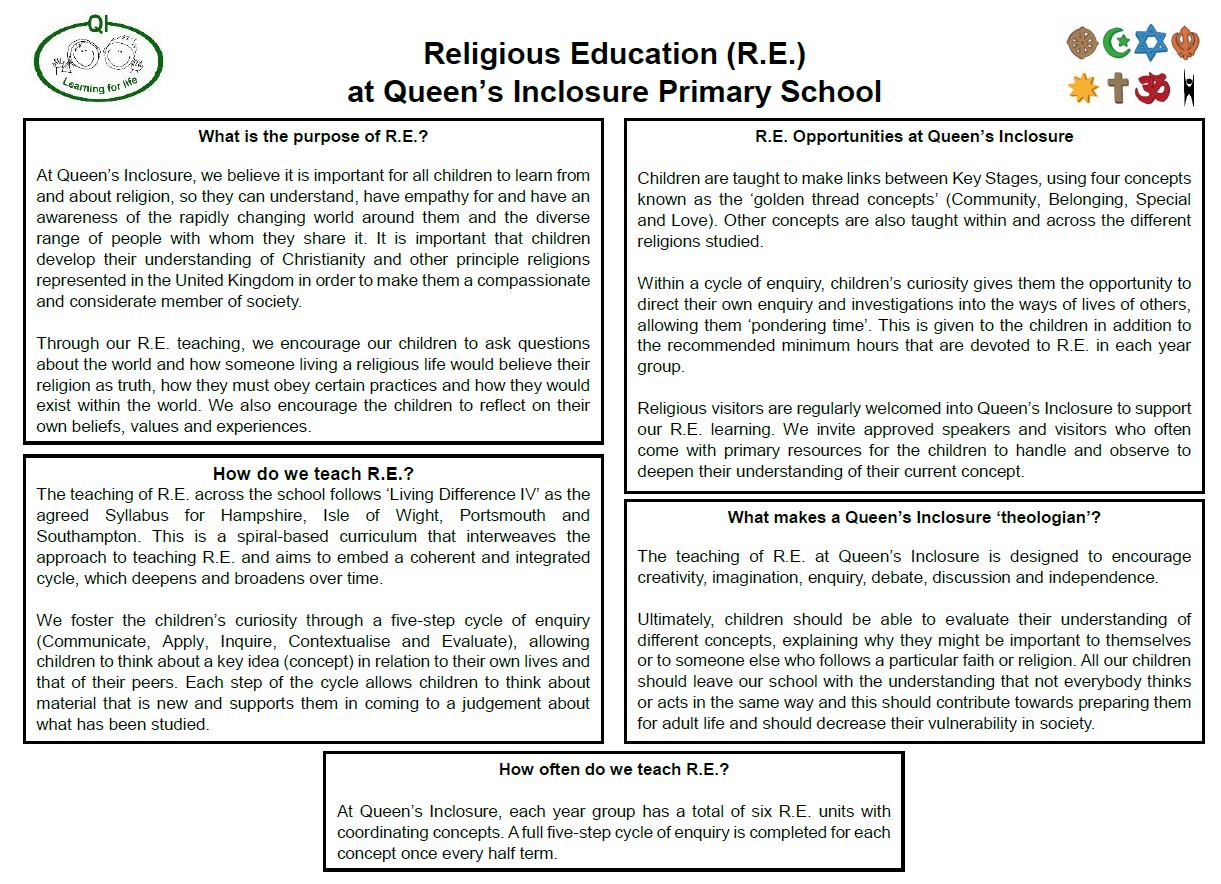Curriculum Information
Curriculum Overviews for Years F to 6
The national curriculum sets out the programmes of study and attainment targets for all subjects - https://www.gov.uk/government/collections/national-curriculum
English
At Queen’s Inclosure Primary School, we ensure that our English curriculum is relevant and engaging for our learners and is driven by their interests and experiences. We know that children learn best when they can relate to and are engaged by what they learn. Our teachers plan learning journeys, which provide the children with a real and relevant context for their learning.
Reading
A strong reading curriculum sits at the heart of an excellent English curriculum. We aim to ensure all children become fluent, confident readers with a developed love of reading. In every year group, a variety of high-quality novels, picture books, stories, poems and non-fiction texts are embedded into our curriculum.
In Foundation, once children have learnt the first set of graphemes, they begin to read simple consonant/vowel/consonant (CVC) words. Children are taught to use their robot arms and blending hands, segmenting and blending the sounds back together again, to learn to read. Harder to read words are also introduced in line with the phases from Essential letters and sounds. These are words that cannot be phonetically decoded, so have to be learnt by sight, or contain exceptions for a grapheme already taught. Alongside reading simple words, children are also introduced to decodable reading books which will be read both in class and at home. At Queen’s Inclosure, we use a variety of decodable books to support our phonics scheme. These include oxford university press and bug club.
Continuing into Year 1 the children learn alternative pronunciations for the graphemes they already know and then the spelling rules. They continue with decodable guided reading books and are encouraged to read more words on sight. Children are encouraged to read the same book more than once to develop expression and fluency.
From Year 1, the key reading skills (responding, explaining, selecting, retrieving, monitoring, summarising and clarifying) are taught in order to improve the children’s ability to comprehend, infer and identify themes within a variety of texts. These skills are taught through daily guided reading lessons and whole-class shared reading sessions. These sessions allow teachers to model, teach and assess children’s understanding effectively. Children are encouraged to develop their understanding through a variety of question techniques ranging from literal questions and exploration questions to expansion questions, which deepen their thinking.
Phonics
Following an update from the DfE around phonics teaching we have moved to Essential Letters and Sounds, this is a phonics programme based on Letters and Sounds (2007).
This new phonics programme will support your children in making quick progress to become fluent and confident readers.
Phonics will be taught daily for approximately 30 minutes. New sounds will be learnt on 4 of this sessions with the 5th being used for reviewing and applying when the children will read a decodable text.
To best support us in teaching your child how to read we ask that you read the decodable text provided or suggested e-book by the school 4 times across the week.
Spending 10 minutes a day reading with your child will hugely support them in their journey to becoming an independent reader. We will be sending a new book once a week on Fridays, this allows your child to re-read each text several times building their confidence and fluency. This is especially important as they begin to learn that the sounds within our language can be spelt in different ways. It is a key part of learning to read that children re-read words and sentences that they can decode (sound out) until they are fluent (read with ease and precision). By reading texts several times children have the greatest opportunity to achieve this fluency.
Any books that are not yet decodable for the children will be a sharing book. These books are there for you to read with you child, helping us to instil a love of reading from the very beginning of their reading journey. These could be read together with your child reading the words they are able to decode or could be read to your child. These books will be chosen by the children from the library.
Writing
Writing journeys always begin by stimulating their interest through an enriching text or a theme-focussed hook. Aspects of the speaking and listening, reading and writing expectations are carefully selected for their journey. We address these three key areas of English through a carefully structured planning approach.
The children immerse themselves with the stimulus, developing speaking, listening and reading skills to ensure that they have the ideas and necessary vocabulary to be ‘ready to write’ at the end of the journey. Children use these speaking and listening opportunities to consider feelings, act out imagined scenarios and debate concepts, ready to more accurately visualise and describe in their final piece of writing.
The next stage is to teach writing skills and structure. This is their opportunity to read as a writer. Explicit word, sentence and text level writing is taught through a ‘practise and play’ approach. The children are given the opportunity to investigate writing skills before making controlled writing choices.
In the last stage of the journey, the children consider the purpose and audience of their writing. During this final stage, the children put into practise the whole journey; planning and write their final piece including success criteria. They understand the value of editing and re-drafting using their purple polishing pens to refine the final piece.
Spelling
Alongside phonics, the children develop a broader understanding of how words are spelt throughout the school. Daily lessons take an investigative approach used to explore the morphology (particular form, shape, or structure) and etymology (the origin of words) as a means of predicting spelling rules and patterns in new words. They apply the spellings learnt in other areas of the curriculum (transferring & applying & retaining).
From Year 3, children learn and practise key statutory spelling lists in a variety of ways. The top ten spelling tips allow all children to discover an approach to learning spelling which best fits them.
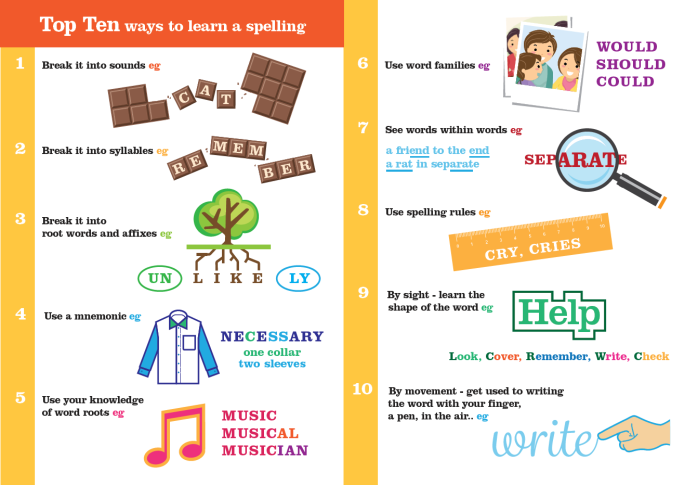
Mathematics
At Queen’s Inclosure, we believe Mathematics is a discipline that equips children with an essential skill set. It develops children’s ability to reason, apply logical thought, problem solve and think in an abstract way. It also allows children to become financially literate in later life. As being numerate is such an important life skill, we aim to foster a positive and enthusiastic attitude towards mathematics that will stay with them for life.
We are committed to ensuring that all children achieve mastery in the key concepts of mathematics, appropriate for their age group, as stipulated in the National Curriculum.
The aims of the National Curriculum are for children to:
- Become fluent in the fundamentals of mathematics through varied and frequent practice with complexity increasing over time.
- Develop conceptual understanding and ability to recall and apply knowledge rapidly and accurately.
- Reason mathematically; follow a line of enquiry, conjecture relationships and generalisations.
- Develop an argument, justification and proof by using mathematical language.
- Problem solve by applying knowledge to a variety of routine and non-routine problems.
For our Foundation Year, the EYFS Statutory Framework sets standards for the learning, development and care of children from birth to five years old and supports an integrated approach to early learning. This is supported by the ‘Development Matters’ non-statutory guidance.
The EYFS Framework aims for children to:
- develop and improve their skills in counting
- understand and use numbers
- calculate simple addition and subtraction problems
- describe shapes, spaces, and measures
Overview of Phases:
Early Years Foundation Stage
Children will have opportunities to practise and improve their skills in counting numbers, calculating simple addition and subtraction problems, and to describe shapes, spaces, and measures, using concrete apparatus.
Key Stage 1 (Years 1 & 2)
Key Stage 1 children will be given a really solid foundation in the basic building blocks of number and place value. This will ensure that children develop confidence and fluency when confronting whole numbers less than 100. They will continue to use practical apparatus to solve addition, subtraction, multiplication and division calculations and problems, and begin to use a range of number line methods.
Children will begin to develop their ability to recognise, describe, draw, compare and sort shapes and use related vocabulary appropriately. They will also solve ‘real life’ problems involving measures in contexts such as: length, mass, capacity, time and money.
Lower Key Stage 2 (Years 3 & 4)
In lower Key Stage 2, children will develop a real mathematical understanding of the four operations, in particular developing competence in relation to larger numbers (up to 4 digit numbers). In addition and subtraction, they will be taught to use place value and number facts to add and subtract numbers mentally as well as use standard written column methods for adding and subtracting larger numbers.
At this stage, children will develop their ability to solve a range of problems, including multiplication and division, and with simple fractions and decimal place value.
Upper Key Stage 2 (Years 5 & 6)
In upper Key Stage 2, children will move on from dealing mainly with whole numbers to performing mathematical operations with both decimals and fractions. They will consolidate their use of written procedures in adding and subtracting whole numbers with more than 5 digits and also decimal numbers with up to two decimal places. Efficient and flexible strategies for multiplication and division will be refined and practised throughout.
At this stage, children will develop their ability to solve a wider range of problems, including increasingly complex properties of numbers and arithmetic, and problems demanding both efficient written and mental methods of calculation.
Children will be provided with opportunities to:
- participate in individual, paired, group and whole class learning and discussions
- undertake problem solving to challenge their thinking
- compete practical activities and games using a variety of resources
- have purposeful practise where time is given to apply their learning
- tackle open and closed tasks
- use computers as a mathematical tool
- learn a range of methods to solve problems including C.P.A. (see below) of calculating e.g. practical, mental, pictorial, informal (number lines and jottings) as well as formal methods (e.g. compact column addition)
A CPA approach
To develop conceptual understanding in maths, we begin teaching using concrete apparatus so children can understand what they are doing, before moving onto pictorial representation (e.g. drawing the problem) and only moving onto abstract representations when they have conceptual understanding to do so. This approach is referred to as CPA (Concrete, Pictorial, Abstract).
Task Design
Task design will present problems in different ways to develop fluency, reasoning and problem solving skills. Question types and task designs will show variation so children can apply learning and make links between different aspects of maths.
Our ‘RUCSAC’ Approach to Problem Solving
Our whole school approach to problem solving is used based on RUCSAC:
The answer itself is not the sole goal!
The reasoning behind mathematical processes will be explored. How answers were obtained will be valued rather than just the answer. Which method was more efficient? Why? Children will ask themselves:
- Can I solve it mentally?
- Can I solve it informally (draw a picture, use a number line, jottings)?
- Or will I need to use a formal method?
Over time, children will develop a repertoire of strategies to solve problems, allowing them to choose the most efficient one, depending on the problem.
We hope that by using these integrated, meaningful approaches to teaching maths, wherever possible within ‘real life’ context, will help develop children’s skills and a lifelong positive attitude towards mathematics.
To assist at home, we have prepared some Mental Maths Guides for Parents:
Art and Design
Computing
Design and Technology (D.T.)
Modern Foreign Language (French)
Physical Education (P.E.)
Personal Development Learning (PDL) and Relationships and Sex Education (RSE)
(Relationships Education, Relationships and Sex Education and Health Education)
To embrace the challenges of creating a happy and successful adult life, our children need knowledge that will enable them to make informed decisions about their wellbeing, health and relationships and to build their self-efficacy. Children can also put this knowledge into practice as they develop the capacity to make sound decisions when facing risks, challenges and complex contexts. Everyone faces difficult situations in their lives. These subjects can support young people to develop resilience, to know how and when to ask for help, and to know where to access support.
The PDL and RSE curriculum is taught at an age appropriate level throughout the key stages. High quality teaching will be adapted to ensure that it is appropriate for the developmental needs of the children.
The RSE Curriculum includes:
• Knowing how their bodies change and develop as they grow into adults
• Knowing how humans reproduce
• Recognising and valuing the importance of relationships and family life
• Providing opportunities for discussions about moral and relationship issues
• Developing respect for themselves, their bodies and other people as part of a rich and diverse community
• Having the information to keep themselves safe from harm
• Helping children to know what to do if they have worries or questions.
The PDL curriculum includes:
- Health and Well being
- Relationships
- Living in the Wider World
Our PDL curriculum is within classes on a weekly basis and is also addressed through assemblies and enrichment opportunities. We will often have visitors, such as the Fire Service, Police, representatives from charities such as the NSPCC, to support this.
We use ‘Trick Box’ as a resource to support children to become more resilient and self-regulate their emotions. This involves children learning different ‘tricks’ to help them boost their self-esteem and self-confidence. This approach is also supported by our well-being team who are trained in bereavement counselling, the FRIENDS programme and FEIPS.
We also have a Parent Support Worker who is able to support families with a range of different challenges and difficulties. Following a referral from the school, parents give their consent to be contacted by our PSW if they feel that would be beneficial. We can also refer to and receive support from the School Nursing Team.
Relevant related documents
https://www.gov.uk/government/consultations/relationships-and-sex-education-and-health-education - the statutory RSE guidance
PDL Long-Term Plan - Curriculum Map
PDL - Progression of Knowledge and Skills
Relationships and Sex Education - Consultation 2022
The Department for Education introduced compulsory Relationships Education for primary children from September 2020. It also became compulsory for all schools to teach Health Education. The purpose of these subjects is to support all young people to be happy, healthy, and safe – to equip them for adult life and to help support children to make a positive contribution to society.
As part of this, all schools are required to consult with parents when developing and reviewing their policies for Relationships Education, which informed decisions on when and how certain content is covered.
Effective engagement gives the space and time for parents to have input, ask questions, share concerns and for the school to decide the way forward. Here at QI, we will listen to parents’ views, and then make a reasonable decision as to how we wish to proceed.
After our initial consultation, we would like to once again consult parents as we have been teaching the content from the Relationships and Sex Education (using resources supported by SCARF) for almost 2 years.
Relationships and Sex Education Consultation
Relationships and Sex Education Policy
Relationships and Sex Education - Frequently Asked Questions
Relationships and Sex Education Consultation Feedback Form - No longer available as the consultation period is closed.
Religious Education
Religious Education Long-Term Plan - Curriculum Map
Religious Education - Progression of Knowledge and Skills (to be added)
Mental Health
https://trickbox.co.uk/ - information related to Trick Box


